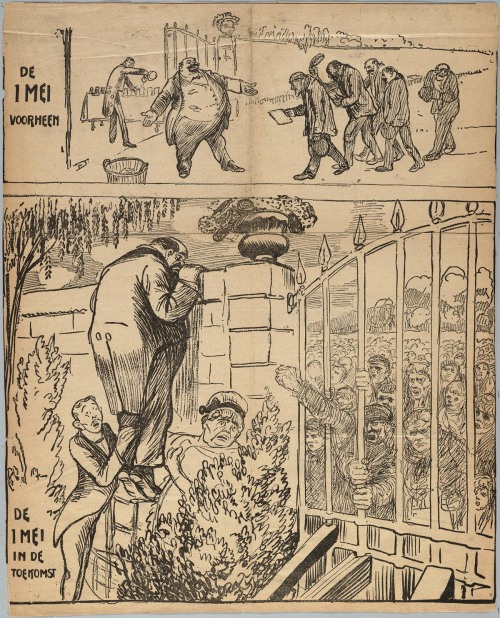#anti capitalism
lesbiansandgayssupporttheminers:
On reading theory:
A lot of people say reading theory is hard. I think a lot of people who say this are often quite young, and haven’t had much experience of reading difficult, academic texts.
The solution is not making easier to read versions of theory, it’s not translating Marx or Kropotkin or Fanon or Gramsci into an easier format (although I do think a lot of modern theorists such as Davis are pretty readable).
The solution is to work at reading theory, until it gets easier, until you get better at it.
I truly believe that reading theory is important, it’s incredibly valuable. Even theory you ultimately don’t fully agree with. It helps you organise your thoughts and your philosophy and understand why these things are so important, and gives ideas of what the end goal should be. It’s hard to organise collectively when people only really have the vaguest idea of what they are trying to achieve.
But I do accept it’s difficult, especially if you’ve never done it before.
So, here is the first thing- if you start reading something, and you’re finding it so dense you’re not getting anything out of it, that’s okay. It’s okay to stop and try something else and then come back to it later on.
It’s fine to stop at any point, that doesn’t mean you’ve failed. You can still take something useful from reading part of a book. It’s fine to take what you’ve gained from reading half a book, or a few chapters or a preface and realise that actually you’re looking for something else right now! It’s not about success, or failure- it’s about learning and being able to take something from what you read.
Equally, you might want to come back to that book in a few months, or a year, or two or five- and at that point you might get a lot more from it.
The second thing is that you need to treat it as a project, as “labour” or “work” if you will. It’s not necessarily a leisure activity. You don’t need to do it all the time. You don’t need to read the whole book in one go. You can work on something for weeks, or months, if you want. Even just reading extracts or chapters is really, really valuable. Remember, whatever you manage to read is likely to be helpful and is a success!
I find reading theory truly really valuable, and I don’t think I find it as hard as some people, but honestly, I probably only read 2-3 books of this kind per year, plus, usually some essays/short form etc. You’re not meant to devour entire reading lists in one sitting, or even one summer.
You may find it useful to take notes, or highlight specific sections or passages to come back to.
Find people to talk about what you’re reading with- this is, to some extent, what working class people did in the late 1800s/early 1900s when a lot of the “classic” people you might think of (Marx, Lenin, Engels, Luxemburg etc) were writing. It’s a good way to connect with other people, and it’s a good way to get more out of the text.
(I’ve just started reading “The Conquest of Bread”, if anyone wants to join me: https://theanarchistlibrary.org/library/petr-kropotkin-the-conquest-of-bread)
The third thing is to start short, start with something relatively easy. I do think everyone anti-capitalist should read the Communist Manifesto at least once, for example, and it’s designed to be more readable than something like Capital. Pdf here: https://www.marxists.org/archive/marx/works/download/pdf/Manifesto.pdf (start with pages 14-32).
If that’s still a bit intimidating right now, then the forth thing is to remember there is definitely literature that is more accessible than pure theory, but still very useful. If you have never really read anything political before, then these things are daunting (or can be). Start with something that feels easy and accessible. Che’s Motorcycle Diaries are both travelogue and personal journey to communism- and truly, truly readable. Try some fiction. I honestly think there is a lot to be gained from e.g. Ursula Le Guin’s The Dispossessed, or The Ragged Trousered Philanthropists by Robert Tressell (pdf here: https://www.freeclassicebooks.com/Robert%20Tressell/The%20Ragged%20Trousered%20Philanthropists.pdf)
Read political memoirs that seem interesting to you (I personally got a lot out of reading a book I’ve now lost, but was the memoirs of a working class suffragette who was married to a Labour party organiser).
Read things that are short form- there are lots of useful essays out there that are only a few pages, or less!
You don’t have to start with Capital, or Mutual Aid, although I do think there is a huge amount to be gained from reading these- even in part.
But if you are reading things on Tumblr, or Twitter about anarchism/communism/general leftism and you want to know more, then at some point it is probably necessary to read some books yourself, if only to formulate your own philosophy, rather than just taking your ideas as packaged by other people. And I do think it is certainly essential before you start trying to espouse your ideas to other people!
one thing that has also helped me is using the footnotes and quotes in books to find other things to read that are directly connected. for example, there are a lot of passages in capitalist realism and i liked the topics of that book so i just worked back from there. it’s interesting bc it doesn’t feel like starting from scratch with every new text.
I found John Holloway’s Change the World Without Taking Power an incredibly useful guide to Marxist thought from a very anti authoritarian angle. Author-approved PDF here: https://platypus1917.org/wp-content/uploads/readings/Holloway_Change_the_World.pdf
If you wanna get 19th century, I think Bakunin is very readable and he has some short essays that are good places to start.
“…They just want you to perfume the sewers. They need artists to bring perfume to the terrible stench of their death. It isn’t doing the artist any good. There is no place to go except to the struggle of the people today. There is no place for the artist. There is no artist arising except from the struggle of the people. …”
- They Want You to Perfume the Sewers
by Meridel Le SueurPost link
I think a lot about how we as a culture have turned “forever” into the only acceptable definition of success.
Like… if you open a coffee shop and run it for a while and it makes you happy but then stuff gets too expensive and stressful and you want to do something else so you close it, it’s a “failed” business. If you write a book or two, then decide that you don’t actually want to keep doing that, you’re a “failed” writer. If you marry someone, and that marriage is good for a while, and then stops working and you get divorced, it’s a “failed” marriage.
The only acceptable “win condition” is “you keep doing that thing forever”. A friendship that lasts for a few years but then its time is done and you move on is considered less valuable or not a “real” friendship. A hobby that you do for a while and then are done with is a “phase” - or, alternatively, a “pity” that you don’t do that thing any more. A fandom is “dying” because people have had a lot of fun with it but are now moving on to other things.
I just think that something can be good, and also end, and that thing was still good. And it’s okay to be sad that it ended, too. But the idea that anything that ends is automatically less than this hypothetical eternal state of success… I don’t think that’s doing us any good at all.
This obsession with forever is something I attribute to capitalism. In capitalist society the best way to make money is to find something you can milk for profit perpetually. The original version of this land ownership and enclosure. If you own all the land, someone will have to rent it from you, always, and this presents a situation where you have an essentially eternal, labor free means of producing profits, by simply siphoning off the wealth of the renter, and there will always be renters.
Failure is when these static money schemes stop producing profit. The coffee shopped failed because it didn’t continue to produce profit. The writer failed because they didn’t continue to produce art that could exploited for profit. On and on and on. If something is not eternal that means it stopped being exploitable, if stopped making money, and thats simply beyond the pale for a society that exists solely to make someone money.
This is one of the ways capitalism is at odds with nature itself. Capitalism NEEDS the eternal and the infinite, it needs a continual source of money that can not only always produce profit but also increase those profits infinitely forever. The world just doesn’t work that way. Resources are finite, systems become unsustainable at a certain point. Things degrade, fall apart, go out of fashion, deplete, die. But capitalism has to act like that isn’t true, it has to try to circumvent this. And its a fool’s game that kills people and destroys the earth’s biosphere.





